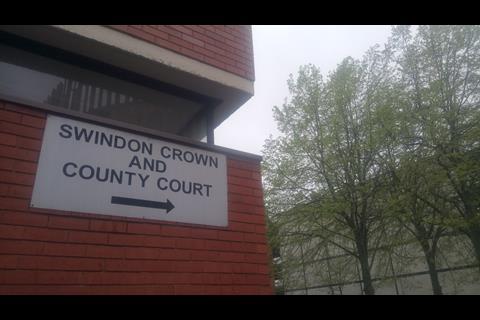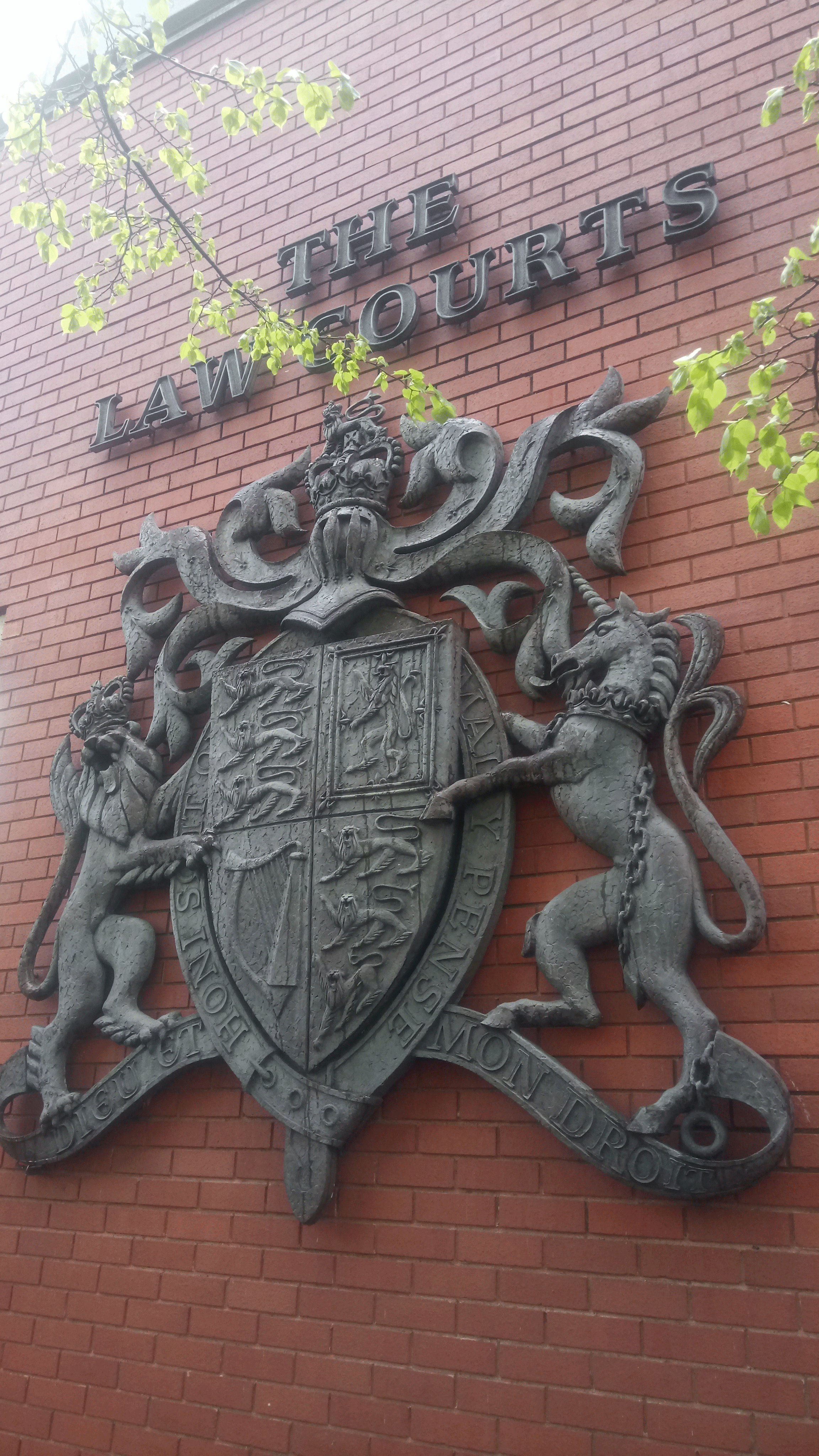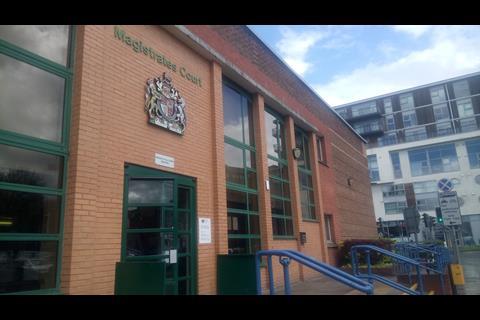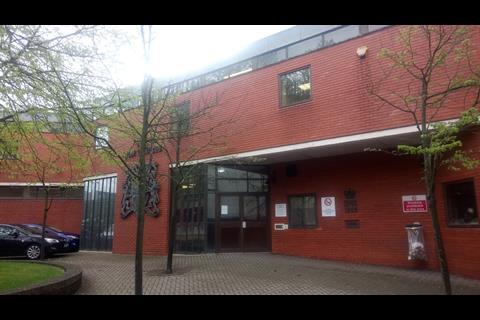
It is just as well the Wi-Fi works at Swindon Crown Court, because the reading material on offer is limited. A copy of Woman from February 2017 and a 2013 RSPB magazine are pretty much it. One lawyer, a veteran of many delays, tells me there is nothing she does not know about the bird population of the south-west.
These are minor problems, but symptomatic of a building crying out for some TLC. The towel dispenser in the gents is broken, the lift (working at least) has one wall covered with plastic sheeting, and there is not a water machine in sight.
Sitting in the waiting area are a divorcing couple (both parties represented) in court to set arrangements for access. Thankfully, they seem to get along, which is fortunate as there is nowhere else to go.
They are grateful to be here at all: this is their third attempt to appear in court and move on with their lives. ‘Once they emailed at 3.30pm on Friday to say the hearing on Monday was cancelled,’ the wife says. ‘I kept refreshing all Monday morning just in case they’d got it wrong.’
The hearing goes ahead, but her barrister tells me delays are now routine, largely because of a shortage of judges and recorders, who work the circuit and cannot always be pinned down to Swindon.
The delays can be costly, the barrister says: ‘We had a placement order case here where the court was deciding on the future of four children. It was delayed by more than 26 weeks. On top of the trauma for everyone, each child is costing £350 a week to be placed in foster care.’
Delays are a constant complaint from lawyers and their clients, but space is also at a premium. There is no duty room, so instead consultations with clients are held in the child’s play area as that is the only place with a desk.
Court staff are helpful but there are precious few of them visible to the public. A notice states that public counter services reverted to appointment in January, with court users able to email or call to book a slot. Where possible, appointments are given on the same day when booked before noon, but it is not unheard of for litigants in person to arrive without an appointment and be unable to speak to anybody.
Investment is happening, with building work for an extra court and new facilities downstairs. But lawyers are dubious about what difference these additions will make: courts in Chippenham (20 miles away) will close this summer with the work shared between Swindon and Salisbury. Nobody expects this to have a positive impact.
Where cases are running, the operation is relatively smooth: the divorcing couple are in and out within an hour, and a drugs trial in the Crown court proceeds without a hiccup. Even in the magistrates’ court, just down the road from the combined county and Crown building, cases (almost always involving alcohol) are processed swiftly. Court ushers swap cases between hearing rooms like generals moving toy soldiers across a battlefield.
Outside the courtrooms, organised chaos reigns. Visitors are directed to report to reception, but there is no one on reception. If the queue to come in has died down, one of the security guards comes round to reception to handle queries. Otherwise, lawyers nip round the front desk to pick up their own files, or chaplains try to guide lost defendants.
It is the afternoon, but some people have been waiting since 9.30am. One chaplain tells me a young woman with a three-year-old waited almost five hours to have her case heard. He says staff shortages are commonplace, as wages are lower than in other local civil service jobs or in comparison with local employers such as Nationwide and Zurich.
Out of sight of the front desk, a man is asleep, lying across four chairs. The plastered wall has a four-inch hole in it. The heat is stifling and again there is no water machine in reception. In the midst of this the wheels of justice turn – slowly.

































2 Readers' comments